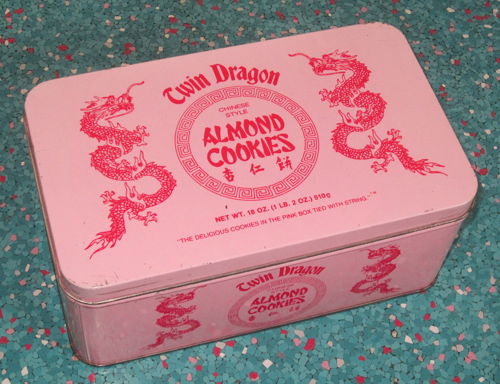
I believe in it, and I wonder how many of our favorite foods, especially our favorite comfort foods, are holdovers from past lives? Is our love for ginger ale or pickled eggs based on nostalgia tagged not to comfort or joy we consciously remember, but comfort or joy hailing us across the chasms of our own unremembered deaths? Did I eat thick white toast somewhere back there -- in wartime England? Colonial India? A Gold Rush log cabin? -- before (re-)entering this world in 1959?
I know I never ate it in this childhood -- Mom, who served huge desserts every night, called all bread "wasted calories" and made my lunchbox sandwiches with "diet bread" sliced cardboard-thin -- until one night when I was ten. We were vacationing in Denver, where a waitress in a diner decorated with toy trains set on our table a plate of what she called Texas toast: inch-thick white slices, toasted golden. Before Mom could snatch the plate away, I seized a slice. It was as if I knew I must. As if it had been waiting for me. Chewing that softness, I felt my eyes prickle with urgency and victory and emotions I did not understand. Sparks flickered in my mind, as when you restart a long-broken conversation.
As Mom made all the rules regarding what I ate back then -- I was forbidden to eat at friends' homes and was not given an allowance; Mom had been overweight as a child and lived in fear that I would be as well -- no thick-sliced bread ever entered our house. Texas toast became a dazzling, poignant memory. One year later, we went to Europe and in a Copenhagen restaurant I was served a thick, soft, nearly black beef stew that was ostensibly unfamiliar yet dazzlingly, electrifyingly familiar.
I sat there in my summer dress and sandals, ponytail swishing, as with every bite my eyes went wider with the shock of what I can only call recognition. Dad asked what was wrong. I pounded the table with my left fist -- the one not holding the fork that was continuously channeling bits of stew to my mouth -- and tried to explain that I knew this dish, that I not only loved it but remembered it, that at long last its goodness had been returned to me.
I knew nothing about cooking then and little about food, so I could not name the components of this dish that so stunned me and which I have never seen or tasted since. Wine? White pepper? Still pounding the table -- why couldn't my parents understand how important this was? -- I scrambled to remember the stew's name.
This, I proclaimed as Mom and Dad talked over me, pointing out the window at the boats, is Burglar Stew.
Still pondering these curiosities forty years later, still loving Texas toast and still striving fruitlessly to recreate that stew, I decided to ask an expert.
"While food preferences or dislikes, on their own, are unlikely to provide convincing evidence of rebirth, they can offer important contributory evidence in cases where a person -- usually a child -- claims to have memories of a past life where that dietary preference is relevant," says paranormal blogger and self-described "sceptical believer" Roy Stemman, author of the forthcoming The Big Book of Reincarnation.
"For example, my book mentions the case of Ma Tin Aung Myo, a girl born in Burma who could remember the life of a Japanese soldier during Japan's occupation of Burma during World War II," Stemman told me. "As well as having a preference for wearing boy's clothes and enjoying war games, Ma Tin Aung Myo complained that [Burmese] food was too spicy for her tastes; she preferred sweet things and also liked to eat fish half raw" -- as if she remembered sushi.
"And in the case of Swaran Lata, an Indian girl, her new life in a Brahmin family was in sharp contrast to her previous existence, when she had been a member of India's lowest caste, the untouchables." As such, Stemman said, Swaran "horrified her vegetarian family by asking for pork."
University of Virginia psychiatrist Jim Tucker, the world's leading scholar in the field of reincarnation studies, includes unusual dietary cravings and revulsions (along with birthmarks, fears, precocity and more) on the scale that he created to assess alleged cases of reincarnation.
In one recent case that caught the media's attention, a five-year-old Oklahoma boy who claimed to have once been a suave Chinese-food-loving Hollywood actor amazed his family by briskly ordering Chinese dishes with which his parents were unfamiliar -- and by mysteriously knowing how to eat this food with chopsticks.
Might past lives explain my Scandinavian-Jewish husband's twin passions for Kalamata olives and kimchee? Neither of these treats "belong" to him vis-a-vis either nature or nurture. He was not fed them as a child. Yet the sight and taste of these things fills his pale blue eyes with tears of grateful bliss. Does this prove the survival of the soul -- or simply neurons saying Yum?
Images courtesy of Kristan Lawson.
